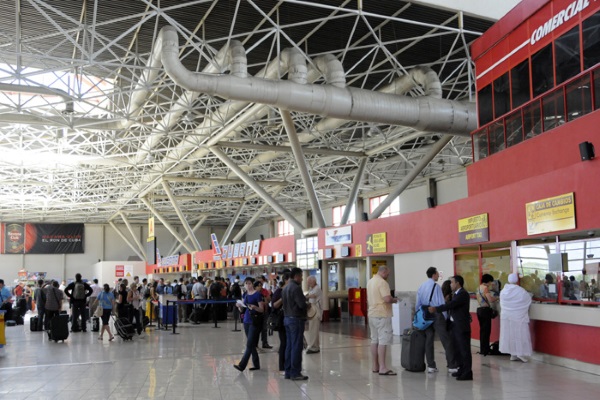
 Cubanet, Jorge Olivera Castillo, 3 December 2015 – We Cubans do not understand closed borders or other measures that try to keep us from arriving at the border between the United States and Mexico with the intention of crossing it and taking advantage of the Cuban Adjustment Act.
Cubanet, Jorge Olivera Castillo, 3 December 2015 – We Cubans do not understand closed borders or other measures that try to keep us from arriving at the border between the United States and Mexico with the intention of crossing it and taking advantage of the Cuban Adjustment Act.
Without any doubt we prefer to risk being stranded in some of the transit countries, or die in the attempt. rather then return to the country where we were born and which we have left as if we had seen a vision
The problem is that the journey is regularly paid for with the sale of our houses and everything within them and the savings of many years. In other words, return, forced or voluntary, would be to live literally in the open-air and without a penny in our pockets.
The efforts to continue the journey through inhospitable places in the Central American geography, until the desired destination is reached, can be explained not only in that there is no longer a home to return to, but also in the fears of facing the consequences, beyond the frowns of some and the apparent indulgences of others.
Let no one doubt that in the case of return, the members of the Party and the Communist Youth, along with the political police and their collaborators, permanent and rented, would be charged with with distributing the correctives with the usual punctuality.
However, this summary of misfortunes does not interest those who will continue planning, between insomnia and impatient, the day of the flight to Ecuador or Columbia. The point is to get away from where the hopes of a better life have been exhausted, from where it is announced, at least once an hour, that socialism with the fixes prescribed by the Politburo will continue forever with no expiration date.
In these times, our compatriots who remain faithful to the proposition of seeking shelter under the cloak of Uncle Sam, believe that there are more chances of success by land than by facing the currents of the Caribbean. Hence, the stubbornness to continue on that route, despite the obstacles that have been raised in some of the countries along the way to stop the flow of Cubans.
The truth is that no one knows how this exodus will end, an exodus that by the numbers is almost as massive as were those of 1965, 1980 and 1994. Meanwhile, the representatives of the island’s regime are determined to prove their innocence in the midst of the tragedy. These sinister characters, as always, blame the stampede on Washington, on the economic financial and commercial embargo that it has maintained since the beginning of the 1960s, and on its migration-favoring Cuban Adjustment Act.
In conclusion, for the sake of the objectivity missing in the official media, controlled by the single party, the grounds for a cyclical phenomenon that has repeated itself in Cuban history for the past 55 years should be noted: the disastrous centralization of the economy, the hijacking of fundamental freedoms by the State, and the impunity of the repressive forces in their determination to protect the status of the power elite who persist in flying, in their own way, the banner of Marxism-Leninism.
